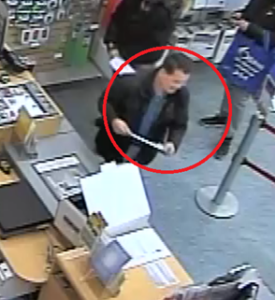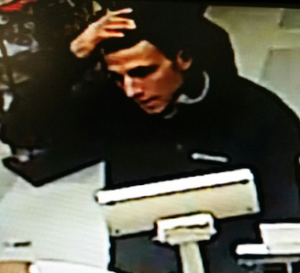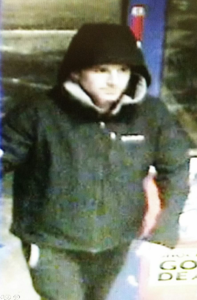http://ottawacitizen.com/news/local-news/it-all-went-up-his-nose-dnd-employee-who-stole-nearly-1m-in-computers-off-to-prison
ANDREW SEYMOUR, OTTAWA CITIZEN
Published on: March 17, 2017 | Last Updated: March 17, 2017 7:01 PM EDT
Andrew Heggaton, a former DND employee and soldier, was sentenced to 3 1/2 years in federal prison Friday after stealing nearly $1 million in computer parts from the Canadian government.
A former DND employee and Canadian Forces soldier whose $400-a-day cocaine addiction led to the theft of nearly $1 million in computer parts from the federal government was sentenced to 3 1/2 years in prison Friday.
And if 33-year-old Andrew Heggaton doesn’t pay back the $966,933.82 the Intel core processors, hard drives, motherboards, and graphics cards were worth within the next eight years, he could be sentenced to another three years of prison time.
Ontario Court Justice Heather Perkins-McVey said the fraud had a “significant impact” on the Canadian Forces Crypto Support Unit where Heggaton once worked, leaving its IT network on the verge of collapsing and seriously affecting the unit’s capacity to function.
“This is not a victimless crime,” Perkins-McVey told Heggaton during the sentencing. “This is the type of offence that erodes the public trust.”
Heggaton pleaded guilty to fraud, trafficking in property obtained by crime and breach of trust by a public officer after stealing the computer parts over a four-year period between 2011 and March 2015. Some of the computer parts were sold by Heggaton on the Internet classified site Kijiji.
Heggaton told a probation officer who prepared a pre-sentence report for the court that drug addiction fuelled the thefts. Heggaton, who had been a soldier in the Canadian Forces for eight years between 2001 and 2009, had begun using illicit drugs during a seven-month tour in Afghanistan in 2003.
The drug use began spiralling out of control once he returned to Canada, and he started using magic mushrooms, ecstasy, speed and cocaine. Heggaton has since attended some Narcotics Anonymous meetings, but has made no effort to attend formal drug addiction counselling, the judge said.
Andrew Heggaton, a former DND employee and soldier, was sentenced to 3 1/2 years in federal prison Friday after stealing nearly $1 million in computer parts from the Canadian government.
“He has nothing to show for it,” Heggaton’s lawyer Michael Smith of the fraud during a sentencing hearing earlier in the week. “It all went up his nose.”
Heggaton was arrested after suppliers started contacting DND in 2014 looking for payment for outstanding invoices for computer equipment that had been ordered but could not be located. Heggaton was listed on the invoices and would have received the items, many of which were ordered with authorization forms that didn’t have any recognizable signature or were missing an additional level of certification.
When challenged by his superiors, Heggaton gave nonsensical answers or tried to pass off older model computers as the missing merchandise.
An internal investigation was launched to ensure any deliveries sent to Heggaton were authorized, and on March 6, 2015, a package addressed to Heggaton containing a large number of Intel Core i7 processors was intercepted.
The CFCSU verified the processors were not required, the parcel was put out for delivery and Heggaton was placed under surveillance. Heggaton was stopped as he left work, and 15 of the processors and four hard drives were recovered from his bag. A search of his work space uncovered additional suspicious invoices and orders along with brand new hi-tech computer parts that were not used by the unit.
During his sentencing submissions, Crown prosecutor Bruce Lee-Shanok said Heggaton’s greed left his co-workers under the lens of suspicion before his arrest. In a victim impact statement, a major said that morale in the unit had reached an all-time low, according to Lee-Shanok.
Court heard Heggaton grew up in a military family. He was born on a military base in Germany. His father was in the British forces, and the family relocated often to bases across the United Kingdom, United States and Canada.
His arrest has strained his relationship with his family, court heard.
Heggaton has since attempted suicide and was admitted to hospital for his depression, Perkins-McVey said. He is now on public assistance, although he earns some extra money fixing laptop computers.
During a hearing earlier in the week, Heggaton told the judge he intends to use his time behind bars on redemption.
“I truly understand the actions betrayed the trust that had been placed in me by my country,” said Heggaton. “I realize that my actions were inexcusable, and for that I am deeply sorry.”








